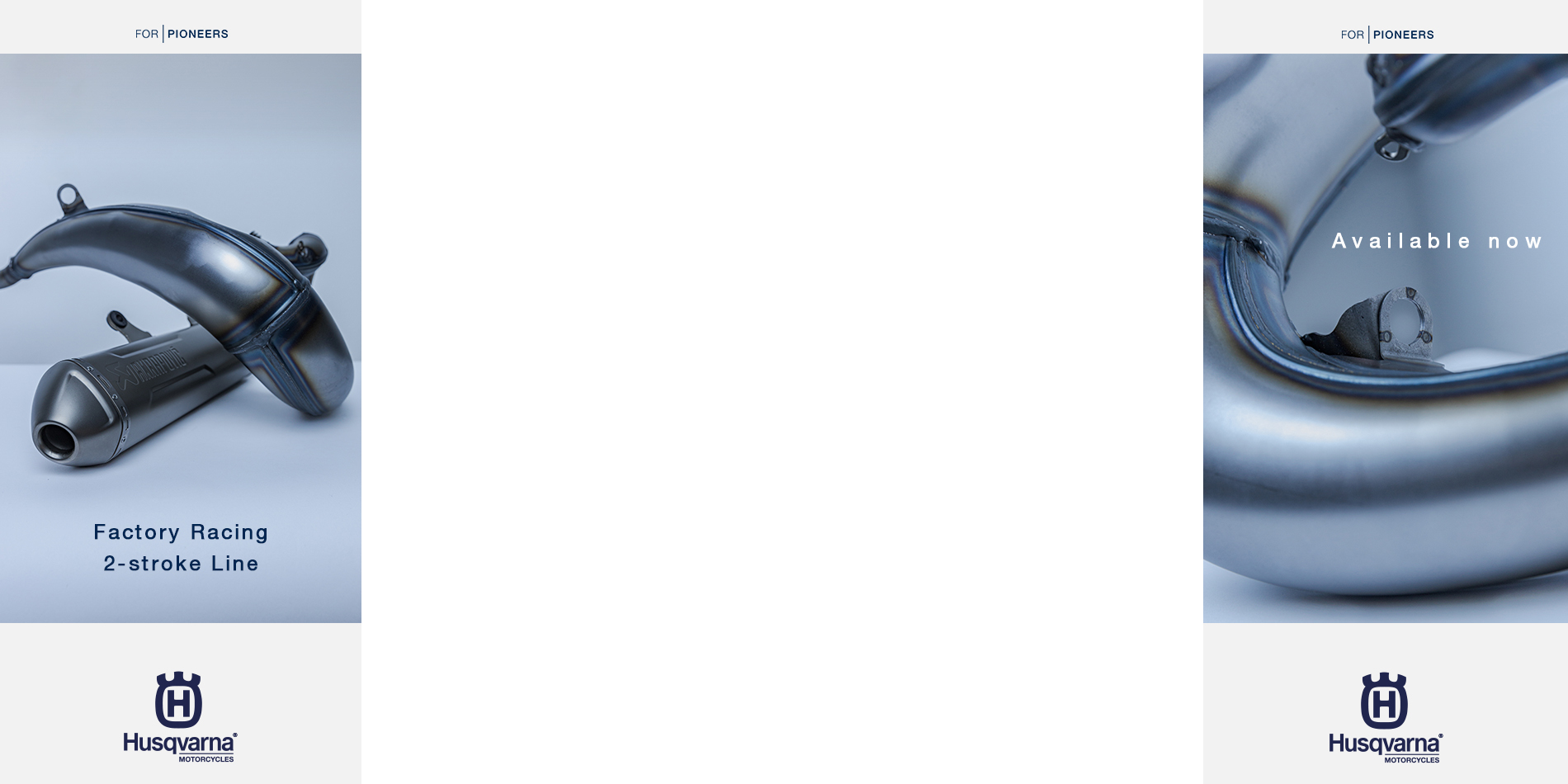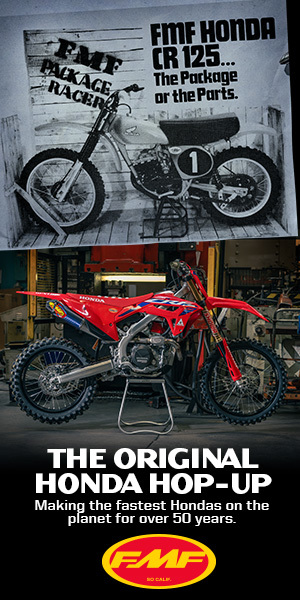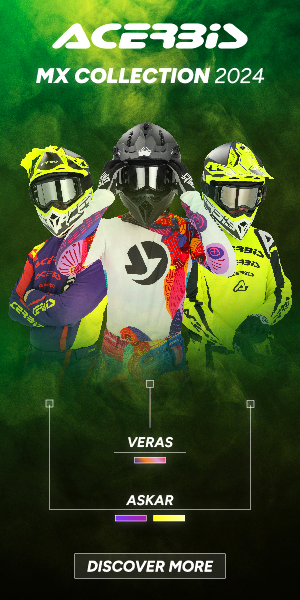Dave Nicoll interview - MXlarge Vault
Posted on November 30, 2018
Another of our vault stories. Hope you enjoy it as much as I enjoyed doing it maybe 10 years ago.
Born in 1944, Dave Nicoll is a former grand prix winner, the father of Kurt (another former grand prix winner) and was for many years the FIM’s world championship Clerk of the Course. He adored his job and it’s this, combined with a love of travel, which had kept him in the MX loop for over half a century.
Back in the days when motocross was referred to as scrambles Nicoll, through a friend of a friend, found himself straddling a motorcycle. A single day in the saddle was enough to convince the then seven-year-old that this was the pastime for him.
“A school friend of my brother was a member of a motocross club. I went and watched one day and he let me ride his bike when I was seven, as soon as I sat on it I knew it was what I wanted to do. I gave my parents a hard time until I got a bike when I was 10. It was Royal Enfield; you couldn’t race until you were 16 back then so I just rode it for fun. I had about 10 different bikes, all old ones. Then, a month before my 16th birthday, I got a proper scrambler – a matchless. The bike was okay, but the ones to have back then were made by Greeves or BSA.”
It was an era when scrambling was tough and only hard men survived. But, for Nicoll, competition was always about fun, enjoying the company of your friends and having a good weekend.
Although young he learned the ropes quickly, racing against stiff opposition he proves his worth and was soon getting offers from teams with foresight. However, he also discovered that his body was not as strong as his determination.
“I started racing in the days of Dave Bickers – he was the star. I had my first race three days after my 16th birthday. I did nothing special; I think I was fifth in my first heat. I just progressed slowly. Then, after I’d been racing for about six months, a local dealer sponsored me. He gave me a Greeves, which was a lot better. The only problem was I broke my leg and was out for a while.
“After that injury I used a private Greeves, which my parents bought. It all went very quickly then: I moved from junior to expert within six months and got a factory James. It was a factory that had just come into motocross. It was not really the best bike to have, but because it was a factory team I took it. I didn’t get an income, just bikes and bits.”
“I was 17. What was interesting was the fact that James was part of the AMC factory, so they were part of Matchless, AJS, Norton and other brands like that. Dave Bickers rode a Matchless at the Motocross of Nations in 1962 and the factory said that I could have his bike after the event. He had only ridden the bike once, so it was like new. I had to go to Bickers’ place to pick it up. He was a big star in England back then, so to go to his house and get a bike was pretty special for a young guy like me. He was so down to earth, just a normal lad really.”
Back in the ‘60s motocross was shown live on the BBC’s Grandstand. It was remarkable era that brought the sport to the mainstream, broadcasting it straight into their living rooms. Nicoll saw his chance to impress, and did just that.
“I practised on that 500cc bike and then raced it in the winter series. It was January 1963 that I won some of the televised races on that machine. I was 19 and it really put me on the map. It was a national series, 12 races in the winter and 10-15 minute races live on TV. I mean, Murray Walker used to do the commentary and I raced against all the best guys: Jeff Smith, Bickers and Vic Eastwood. That winter put me in a big picture. I was the new kid.”
Despite shining on television the following summer didn’t go to plan. Poor preparation and tiredness from a hard winter series cost him the chance of racing with the big boys at GP level. However, a year later he did make the move and, with the support of the Matchless factory, went into the 1964 grand prix season fired up, ready to show the world his talent.
“Having ridden all winter when it came to the summer I was not really up to the job. I didn’t do anything in that summer. Then, in 1964, I did my first GP, which was I think in Holland, at Marcelo. The other factory Matchless rider was Vic Eastwood.
“I did six GPs back then and I finished fifth at the Danish GP, I was 20-years-old. That was the start of it, I did several years in GPs but was never really a contender for the title. I won a grand prix and had several podiums. I don’t know why I didn’t make it; looking back, maybe I should have worked harder. I was living sensibly, I worked on my bike and I didn’t do hours of gym work, I just kept good in shape and rode a lot.
“I was an apprentice engineer and I didn’t get much – when I signed with Matchless I was not earning a lot from my job. The Matchless deal was like a normal paying job, nothing special, but better than my apprentice wage.”
Five years of grand prix motocross conjured up several podiums finishes and then, on a warm day in Luxembourg, Nicoll made his first and only ascent to the top of a GP podium. In typically dusty conditions around the Ettelbruck circuit Nicoll was more motivated than ever; he bolted out of the start gate like a rocket. With a hot sun grilling the circuit a thick blanket of dust protected his lead – there was no contest for the overall victory.
“I made good starts and it was dusty in Luxembourg. Paul Friedrichs, who was the man of that moment (having won the last three 500cc championships) couldn’t get to me because of the dust. I was a little lucky really.
“My major success, though, came at the televised races, and I was also very successful in the French Internationals. I rode for Matchless for three years, then a year on my own and seven years with BSA. After that I rode for smaller factory teams like CCM, I did that for a couple of years. I stopped doing the GPs when BSA finished. The French and Belgian Internationals at the start and end of the season, during the middle of year it was often easy pickings.”
Two years after his GP win Nicoll ventured to America for his first and only appearance in the legendary Trans-AMA series. This was a major series and the world watched as grand prix heroes took on their slower, American counterparts. For Nicoll it was another chapter in his impressive career. With support from the BSA factory he swept through that warm American summer and captured his own piece of history, leading home world champions Jeff Smith and Joel Robert to take the number one plate.
“It was 1971 when I won the Trans-AMA series. It ran for four or five years and we spent three months in America that year. I was riding for BSA at the time and we went as a complete team. We travelled together, Mark Banks, Hickman, Jeff Smith and I. We had some fun with guys like Gerrit Wolsink and Roger De Coster; and we had friendly competition with Joel Robert, who was the king of that time. I won the series, but Robert missed the first two or three rounds and the points system wouldn’t let him catch up.
“Although I won Robert was really the quickest guy back then. I beat him a few times, but he won most of the races. I only did one year in America. The BSA factory sent us over, but it closed its doors at the end of the 1971 season so we didn’t go as a team after that.”
With many of his fondest racing moments stemming from his association with the company (BSA) – including his GP victory and Trans-AMA title – Nicoll decided it was time to pack it in, at least at GP level. He did, however, remain on the European scene, picking up prize money in the French and Belgian Internationals. With a career that never really reached the point he might have hoped, Nicoll began to work for the ACU as the motocross des Nations team manager. But, despite enjoying his tenure as Britain’s team boss, he was forced to alter his course once again as his son Kurt began to race.
“I retired in 1978, when I was 33-years old. Then I became the Motocross des Nations team manager. Kurt started schoolboys in ’79 and I began helping him, plus doing federation work for the FIM. I was Jury President at several GPs from 1981 to 1983; I was British team manager during those years too. When Kurt started racing grand prix the rule was that if you are involved with a rider you could not work for the FIM. So I managed Kurt from 1983 until he stopped in 1997.”
Working with his son was a pleasure, although they had their moments. There are no regrets though, and the bond they formed still brings joy today.
“We had very good relationships; we were not like father and son, more like brothers. With my racing experience we thought alike – I knew what he was thinking all the time. He could be a little hot, his temperament was an issue at times, but I knew when to say something and also when to stand back and let him sort it out for himself.
“To be honest the danger side of things didn’t worry me. I was emotionally involved with his success and defeats. I mean, some of the second places he had were so unlucky. I remember in 1989 he went into the last round and needed to win all three races to win it, whereas Georges Jobe needed to finish second in all three to clinch the title. As it turned out Kurt won all three races, but Jobe finished second in all three too, so he won the title. Kurt missed out by two points or something. Then he broke his leg one year when he was easily the quickest ‘my number two son Aaron was his mechanic for seven years, so that was really special. It was a real family thing.”
Nicoll has another son, Robert, who, along with Aaron runs Dave’s UK-based business. Meanwhile Kurt is now head of KTM’s sport department. The family is tightly knit and it’s this closeness that ensures Dave can normally be found wearing a smile these days.
“It was just a way of life; around the dinner table it was always motocross. In 1992 Aaron stopped working with Kurt and he got into my business. I have a distribution business for industrial gas. Aaron and Robert – my third oldest son – took over the business and I stand back and let them get on with it. They are doing a really great job. It is very satisfying to see your sons doing so well. I mean, having my two sons running the business is no different seeing Kurt having success in his field of work, as long as they do their best then I am happy for them. Even in difficult times Aaron and Robert have taken the business to another level.”
When Kurt retired from racing Dave began representing the grand prix teams. His efforts were noticed and led to Action Group’s promotional manager, Giuseppe Luongo, and FIM motocross president, Wolfgang Srb, to approach him with a view of increasing his involvement at a higher level.
“When Kurt retired in 1997 I had nothing to do, but in those days MIAG was an industry group and they asked if I could represent them in the 500cc class. Each class had somebody looking after it and I took care of the 500cc guys. I never got paid, only expenses. I was working for MIAG at the end of 1998 and then Giuseppe Luongo and Wolfgang Srb said it might be a good idea if I worked for the FIM as Race Director. I was pleased, and I have been doing it now for seven years.
“I like to think I am giving something back, but that’s really not true. I don’t get much stick from people in the paddock; I don’t want to get into the politics of it all. In this sport we have to move forward, we can’t stand still, and believe the people in the paddock believe I am here for the sport, to improve things, I do my best to make races run and be as fair as possible.’ Nicoll still has a lot to offer the sport. Working with the FIM can be an unforgiving job, however, he knows that with his experience as a racer and team manager, plus his other qualities, and he is the right person for the job.
“I am a level-headed, diplomatic person and I don’t fire up. I can see clearly from a distance or up close, nothing sways me one way or another. The hidden things are my competitive side: I am a terrible loser. I didn’t do anything in my racing that might be considered bad sportsmanship, but I hate to lose, you won’t see it – I keep it inside – but I really am a bad loser. I hate to admit it, but my wife gets onto me to let the grandchildren win sometimes. I do let them win occasionally, but I don’t want to! In anything I do I want to win?”











